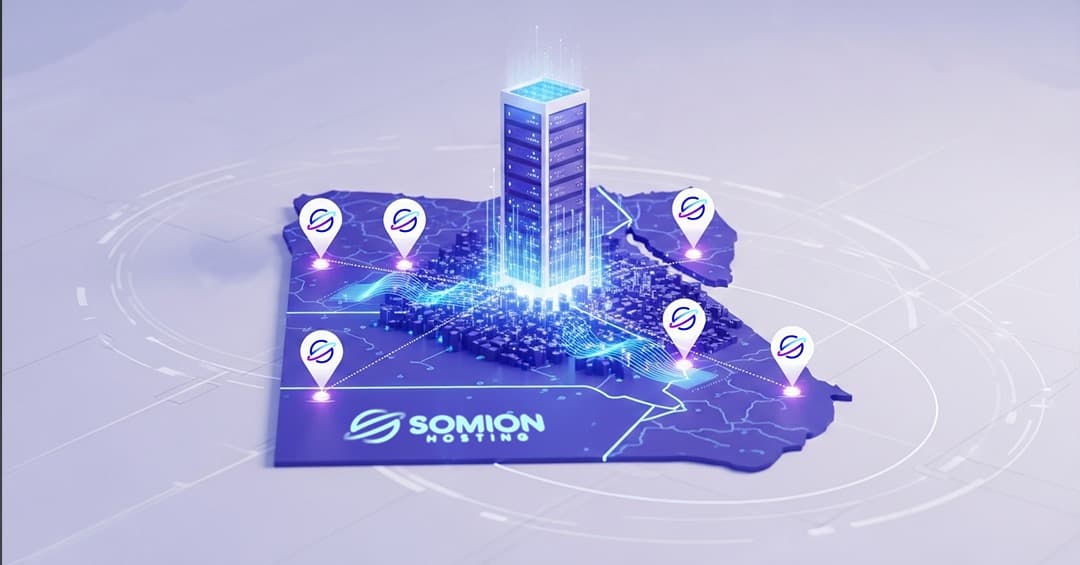
What is a Domain? A Complete Guide to Domain Names with Somion Hosting
When you decide to build a new website, the very first question that comes to mind is: what is a domain? Simply put, a domain is the gateway to your online presence. It is the unique address that allows users to reach your digital platform with ease.
Imagine the internet as a massive city filled with millions of houses (websites). For people to visit your house, they need to know your exact address. That’s where the domain comes in—it’s the unique signpost that directs visitors straight to your site.
Understanding what is a domain is not just about knowing its definition. It’s about realizing that it plays a crucial role in building your online identity, enhancing trust, and making your site accessible to the world. In this comprehensive guide from Somion Hosting, we will explore everything you need to know about domains: their definition, components, types, how to choose one, common mistakes, SEO impact, registration and transfer steps, and even how to protect them.

What is a Domain and Why is it Important for Every Website?
So, what is a domain? A domain is the unique website address typed into the browser’s bar (like example.com). Every website needs a domain so visitors can easily find it.
Why domains matter:
Digital identity: Your domain reflects your brand or business.
Ease of access: Instead of memorizing IP numbers, users type a simple name.
Credibility: A professional domain builds trust with your audience.
Without a clear domain, your site becomes hard to remember or revisit. Knowing what is a domain is the first step toward online success.
How Does a Domain Work with Hosting to Build a Website?
Many beginners ask: if I have a domain, do I still need hosting? The short answer: yes.
Domain: The address (e.g., site.com).
Hosting: The server that stores your site’s files.
Connection: When someone types your domain, it points to your hosting server and loads your content.
Steps of how it works:
Register a unique domain for your project.
Choose reliable hosting from Somion Hosting.
Connect the domain to the hosting through DNS settings.
Understanding this process clarifies what is a domain in the bigger picture of website building.
What are the Main Components of a Domain?
To understand what is a domain in detail, you need to break it down:
Second-Level Domain (SLD): The core part of the name, like “google”.
Top-Level Domain (TLD): The extension such as .com, .net, .org.
DNS servers: They translate the domain into an IP address.
Example:
In "example.com":
“example” is the SLD.
“.com” is the TLD.
These parts combined define what is a domain and how it functions.

What is the Difference Between a Domain and Hosting?
New users often confuse the two.
Domain: The address visitors type.
Hosting: The physical space where site files are stored.
Relationship: You need both to run a website.
Easy analogy:
The house = your website.
The land = hosting.
The street address = the domain.
This helps clarify what is a domain versus hosting.
What is the Difference Between Domain Types?
Not all domains are the same. There are several categories:
Generic TLDs (gTLD): .com, .org, .net.
Country-code TLDs (ccTLD): .uk, .sa, .eg.
New TLDs (nTLD): .shop, .tech, .online.
Knowing these differences is essential when choosing and understanding what is a domain.

How to Choose the Right Domain for Your Website?
Selecting the right domain is critical:
Keep it short and memorable.
Avoid numbers or complex symbols.
Make sure it’s relevant to your industry.
Include a keyword if possible.
Following these tips ensures you not only know what is a domain, but also how to choose the best one.
What are the Common Mistakes When Choosing a Domain?
Even after learning what is a domain, people still make errors:
Picking overly long names.
Choosing difficult spellings.
Using uncommon or confusing extensions.
Selecting names too similar to competitors.
Avoiding these mistakes keeps your domain professional and effective.
How Does a Domain Help Improve SEO?
So, what is a domain in SEO terms? It has a partial but notable effect:
Keywords in the domain may help slightly with rankings.
Older domains often build trust with search engines.
Short, simple domains improve click-through rates (CTR).
Secure domains with SSL (https) are favored in rankings.
Thus, what is a domain ties directly into SEO strategies.
What are the Steps to Register a Domain with Somion Hosting?
Here’s the typical process:
Search for an available domain using Somion Hosting’s tools.
Choose a suitable extension (.com is globally recommended).
Connect it to your hosting plan seamlessly.
Activate domain privacy (Whois protection).
Once you’ve done this, you no longer just ask what is a domain—you own one.
How to Transfer a Domain from One Company to Another?
You may want to move your domain to Somion Hosting.
The steps:
Obtain the authorization (Auth) code.
Approve the transfer request from your current provider.
Confirm and activate it with the new provider.
This process highlights the importance of understanding what is a domain and managing it correctly.
What is the Difference Between Free and Paid Domains?
Even after knowing what is a domain, you may wonder: should I get a free one?
Free domains: Usually come with limited hosting. Downsides: lack of credibility and control.
Paid domains: Provide full ownership, flexibility, and professional credibility.
Companies like Somion Hosting always recommend paid domains for serious projects.
How to Protect Your Domain from Theft or Loss?
Once you know what is a domain, you must also learn to secure it.
Protection tips:
Enable domain lock.
Renew your domain on time.
Use Whois privacy protection.
Register only with trusted providers like Somion Hosting.
FAQs About What is a Domain
Q1: What is a subdomain?
A subdomain is an extension of your main domain, like blog.example.com.
Q2: Can I change my domain after registration?
Not directly. You can register a new domain and redirect your site.
Q3: What’s the difference between .com and .net?
.com is the most common worldwide; .net is more common in tech fields.
Q4: Does a domain affect Google rankings?
Yes, partially. Short, keyword-rich, and secure domains can help.
Q5: How long can I register a domain for?
From 1 year up to 10 years, with auto-renew options.
By now, you should have a complete understanding of what is a domain and why it’s essential for every website. A domain is not just an address—it’s your online identity, a trust signal, and a crucial factor in your digital success.
With Somion Hosting, you can easily register, connect, and secure your domain. If you’re planning to launch a successful website, start by understanding what is a domain, then choose a professional name that fits your project. That will be your first solid step toward building a strong global presence.
